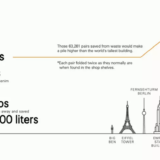More than 90% of people are breathing toxic air
Nearly every person on the planet is breathing in dirty air that is likely damaging our health, often with fatal consequences, according to research by the World Health Organization.
Younger populations face the biggest risk. Air pollution contributed to the deaths of more than half a million children under the age of 15 in 2016.
Air pollution is one of the leading threats to child health, according to the WHO. It accounts for almost 1 in 10 deaths in children under the age of five. Pregnant women who are exposed to polluted air are more likely to give birth prematurely, and have small, lower birth-weight children. There is also evidence that exposure to polluted air has harmful effects on children’s neurodevelopment and cognitive ability. It can also trigger asthma, and childhood cancer. Research also shows that children who have been exposed to high levels of air pollution may be at greater risk of chronic illnesses such as cardiovascular disease later in life.
These are some of the findings of the WHO’s Prescribing Clean Air report, which reveals that over 90% of the world’s population breathe in toxic air and that around 7 million people die prematurely every year because of illnesses caused by air pollution. It’s not just outside air quality that’s a problem, according to the WHO. Household air pollution is damaging people’s health, too – most notably from fumes caused by cooking, heating and lighting.
At the WHO’s inaugural Global Conference on Air Pollution and Health, which opens in Geneva on Tuesday 30 October, the body will call upon industry and governments to take bolder and more effective steps to improve air quality. That includes reducing the global dependence on fossil fuels, using more renewable energy, and improving energy efficiency.
The WHO is calling for the exclusive use of clean technologies and fuels for household cooking, heating and lighting, as well as better waste management which could also help by reducing the amount of waste burned within communities.
While some of the worst polluted cities in the world are found among emerging economies, this is a truly global phenomenon.
South Africa’s Mpumalanga province has been named the worst place on Earth for nitrogen dioxide pollution by Greenpeace. The Indian city of Delhi is regularly plagued by excessive air pollution.
The European Union also has a serious air pollution problem. Around 400,000 people are killed prematurely each year by poor air quality. The EU’s environmental agency says that while air pollution is slowly improving across the continent it still exceeds guidelines issued by WHO.
This article first appeared on the World Economic Forum.







